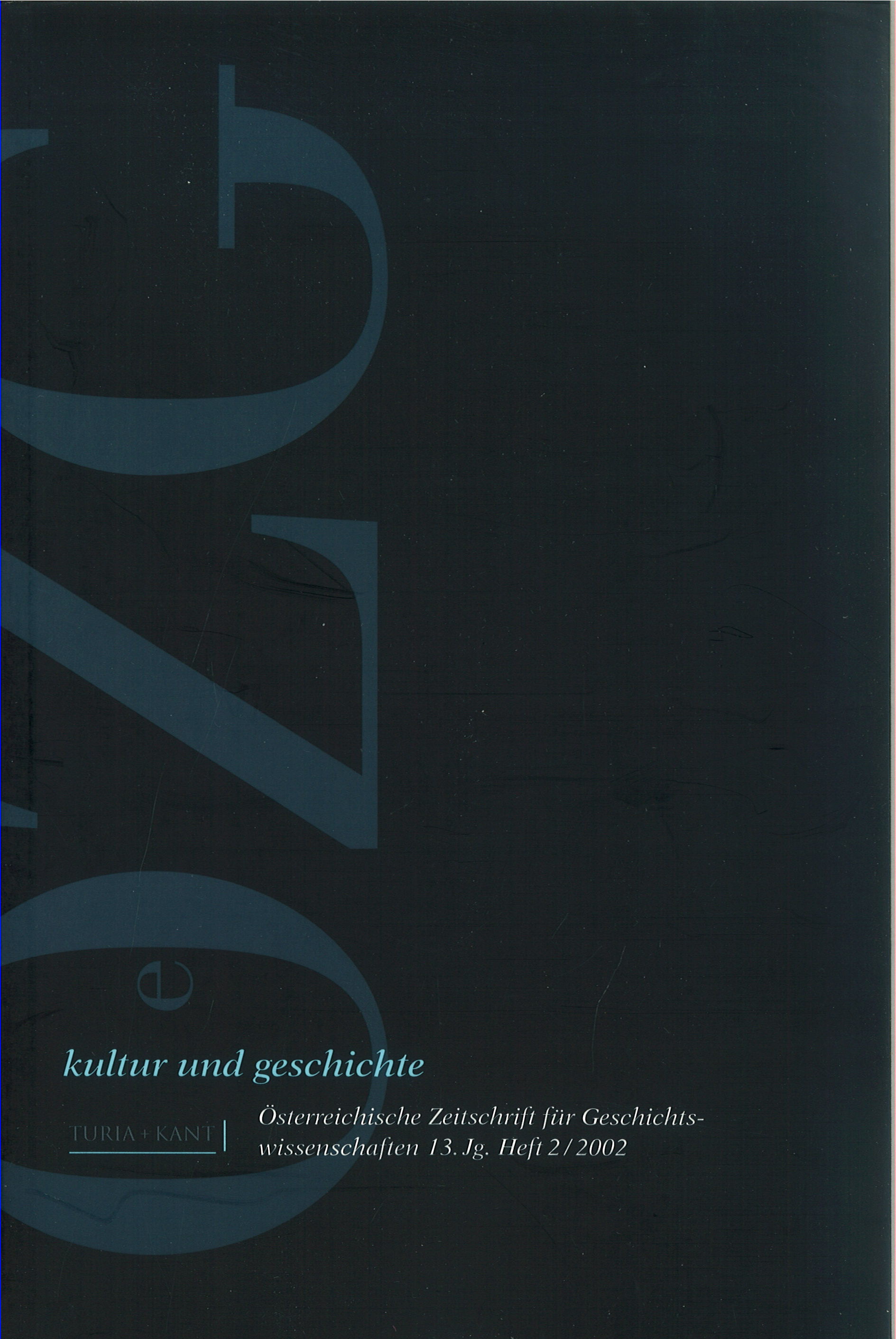Culture and Empire
On a neo-josephine concept of culture, 1848 - 1918
DOI:
https://doi.org/10.25365/oezg-2002-13-2-2Abstract
Against the backdrop of the prominent 'German' understanding of »Bildung und Kultur«, the article looks at a constellation in German-Austrian (political as weil as scientific) discourse, where the concept of culture was closely related to an idea of Empire. The structure and signification of this »neo-josephine« understanding of culture are explored in two dimensions. In the genealogical perspective, the role of the foundation of an Empire of Austria in 1804 and its 'secular' reinterpretations in patriotic appeals for political reform after 1848 are pointed out. The second dimension refers to the political value of the concept: Both notions, culture and Empire, could weil be turned against national movements threatening Austria's political unity. Moreover, a universalist, naturalist and non-national understanding of culture - drawing on the wide, post-Enlightenment meaning of the concept - promised a reconciliation of German-Austrian split loyalties.


